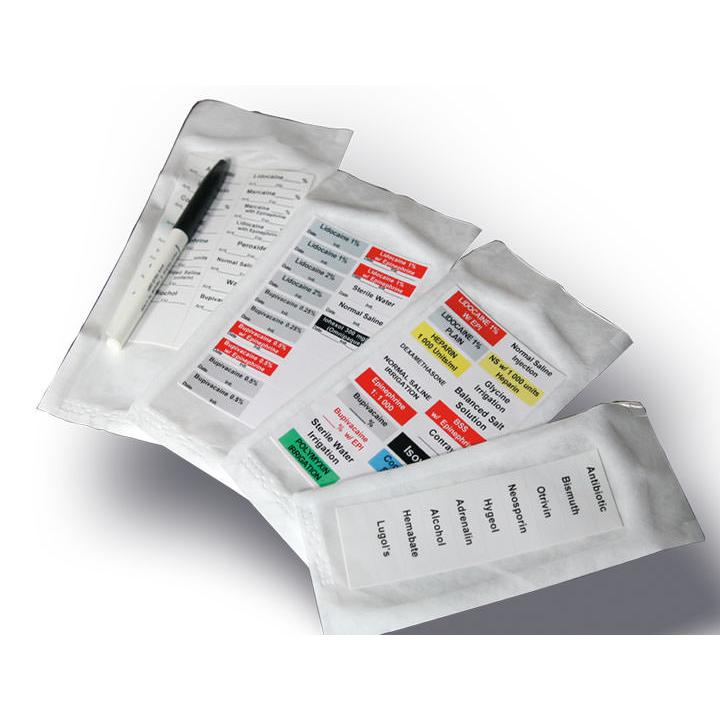
The Advantages of Sterile Labels in Hospitals
The Advantages of Sterile Labels in Hospitals: Ensuring Safety and Efficiency
In the fast-paced and crucially important environment of hospitals, maintaining a sterile and organised workflow is crucial. Ensuring patients and staff are kept safe, all while maintaining operational efficiency is key. One essential aspect of this process is the use of sterile labels. These specialised labels play a crucial role within hospitals by providing accurate identification, clear instructions, and vital information for medical staff. In this article, we will explore the benefits of using sterile labels in hospitals.
Enhanced Patient Safety
Sterile labels serve as an integral part of patient safety protocols in hospitals. By clearly identifying sterile equipment, medications, and supplies, these labels help prevent cross-contamination and the spread of infections. Accidental mixing of non-sterile items with sterile ones can have severe consequences for patient health. This makes it vital to have a reliable system in place. Sterile labels act as a visual cue, reminding healthcare professionals to handle and use items appropriately.
Effective Workflow Management
In a busy healthcare setting, time is of the essence. Efficient workflow management is crucial for healthcare professionals to deliver prompt and effective care. Sterile labels play a significant role in streamlining processes by providing vital information at a glance. These labels can include details such as expiration dates, lot numbers, and usage instructions. Sterile Labels ensure that staff members have immediate access to critical information. This quick and easy retrieval of data enables healthcare professionals to make informed decisions promptly, eliminating unnecessary delays in patient care.
Accurate Inventory Management
Maintaining an accurate inventory of medical supplies and equipment is essential to prevent shortages and stock-outs. Sterile labels assist in inventory management by providing clear identification and tracking information. Accurate inventory management facilitated by sterile labels helps hospitals optimise their supply chain, reduce waste, and ensure that they always have the necessary items available when needed.
Regulatory Compliance
Hospitals must comply with stringent regulations and guidelines set by health authorities. Sterile labels play a vital role in meeting these compliance requirements. Regulations often mandate the labelling of specific items, such as medications and medical devices, to ensure patient safety and traceability. By using sterile labels that adhere to regulatory standards, hospitals can demonstrate their commitment to maintaining quality care and minimise the risk of non-compliance penalties.
Efficient Communication
Effective communication is vital in a hospital environment where many healthcare professionals are involved in a patient’s care. Sterile labels create clear and concise communication, ensuring critical information is available to all of the healthcare team. Whether it’s indicating the contents of a syringe, noting allergies, or conveying instructions for use, sterile labels provide a standardised and easily understood format. This promotes seamless collaboration, reduces the likelihood of errors, and improves patient outcomes.
The Advantages of Sterile Labels in Hospitals: Conclusion
In the complex and fast-paced world of hospitals, sterile labels play a crucial role in ensuring patient safety, promoting efficiency, and adhering to regulatory requirements. From enhancing patient safety and facilitating workflow management to enabling accurate inventory management and effective communication, sterile labels provide numerous benefits for healthcare facilities. As hospitals continue to prioritise patient well-being and operational efficiency, the use of sterile labels remains an essential tool in their arsenal. By embracing this simple yet powerful solution, hospitals can optimise their processes, reduce errors, and provide the best possible care to their patients.
